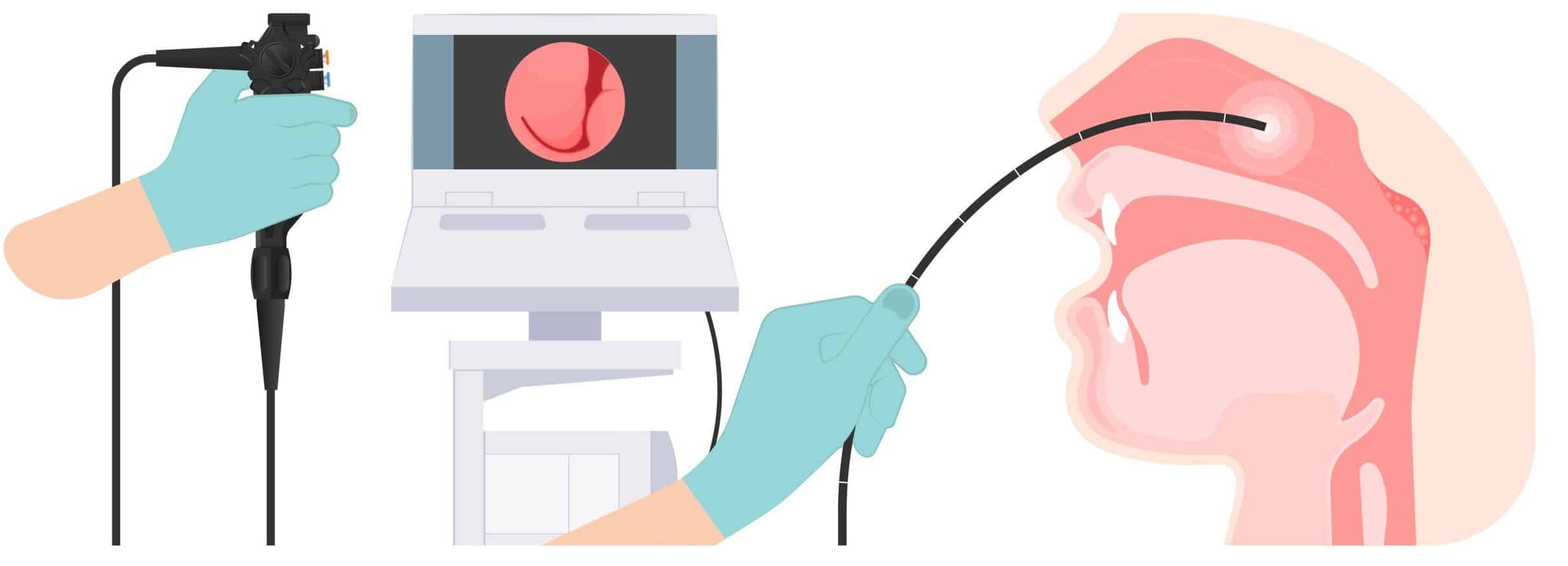This article is for educational purposes only. It should not be used as a template for consenting patients. The person obtaining consent should have clear knowledge of the procedure and the potential risks and complications. Always refer to your local or national guidelines, and the applicable and appropriate law in your jurisdiction governing patient consent.
Overview of Procedure
A flexible nasal endoscopy (FNE) is a common diagnostic ENT procedure performed as part of routine head and neck examination that allows the direct visualisation of the nasal cavity, pharynx (naso/oro and hypopharynx), and larynx (supra-glottis/glottis and sub-glottis) using a flexible fibre optic scope with a bright light (Fig. 1).
Local anaesthetic (usually combined with co-phenylcaine) is sprayed into the nasal cavity to anaethetise and decongest the nasal mucosa before the endoscope is inserted gently. Although this procedure can be uncomfortable for some patients as it is performed awake, it is a low risk procedure and this should be communicated clearly pre-procedure.
Complications
Intra-Operative
| Complication | Description of Complication | Potential Ways to Reduce Risk |
| Failure to tolerate procedure | This can include through sneezing, coughing, or spasm of the vocal cords, caused by irritation of the nasal mucosa | Use of appropriate local anaesthesia |
| Failure to diagnose | Ensure the scope focus is optimised and clean for maximum diagnostic sensitivity |
Early
| Complication | Description of Complication | Potential Ways to Reduce Risk |
| Pain | Use of local anaesthetic before procedure. | |
| Bleeding | Epistaxis occasionally can occur, however usually resolves without any intervention | Make efforts to avoid scraping the nasal mucosa during the procedure |
| Allergic reaction to local anaesthetic or decongestants | Check allergies before medications given |

